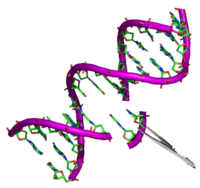
Exosomes: Potential Therapies for Disease via Regulating TLRs
Sign Up to like & getrecommendations! Published in 2020 at "Mediators of Inflammation"
DOI: 10.1155/2020/2319616
Abstract: Exosomes are small membrane vesicles that retain various substances such as proteins, nucleic acids, and small RNAs. Exosomes play crucial roles in many physiological and pathological processes, including innate immunity. Innate immunity is an important… read more here.
Keywords: immunity; exosomes potential; disease via; therapies disease ... See more keywords

Drug reprofiling history and potential therapies against Parkinson’s disease
Sign Up to like & getrecommendations! Published in 2022 at "Frontiers in Pharmacology"
DOI: 10.3389/fphar.2022.1028356
Abstract: Given the high whittling down rates, high costs, and moderate pace of new medication, revelation, and improvement, repurposing “old” drugs to treat typical and uncommon illnesses is progressively becoming an appealing proposition. Drug repurposing is… read more here.
Keywords: history potential; potential therapies; parkinson disease; reprofiling history ... See more keywords

Involvement of Lipids in Alzheimer’s Disease Pathology and Potential Therapies
Sign Up to like & getrecommendations! Published in 2020 at "Frontiers in Physiology"
DOI: 10.3389/fphys.2020.00598
Abstract: Lipids constitute the bulk of the dry mass of the brain and have been associated with healthy function as well as the most common pathological conditions of the brain. Demographic factors, genetics, and lifestyles are… read more here.
Keywords: disease pathology; alzheimer disease; pathology; brain ... See more keywords

Murine Fibroblasts and Primary Hepatocytes as Tools When Studying the Efficacy of Potential Therapies for Mucopolysaccharidosis Type I
Sign Up to like & getrecommendations! Published in 2022 at "International Journal of Molecular Sciences"
DOI: 10.3390/ijms24010534
Abstract: Mucopolysaccharidosis type I (MPS I) is a metabolic genetic disease caused by the deficiency of a lysosomal enzyme involved in glycosaminoglycans (GAGs) degradation. MPS I cells have a constant level of GAG synthesis, but disturbed… read more here.
Keywords: mucopolysaccharidosis type; primary hepatocytes; potential therapies; synthesis ... See more keywords